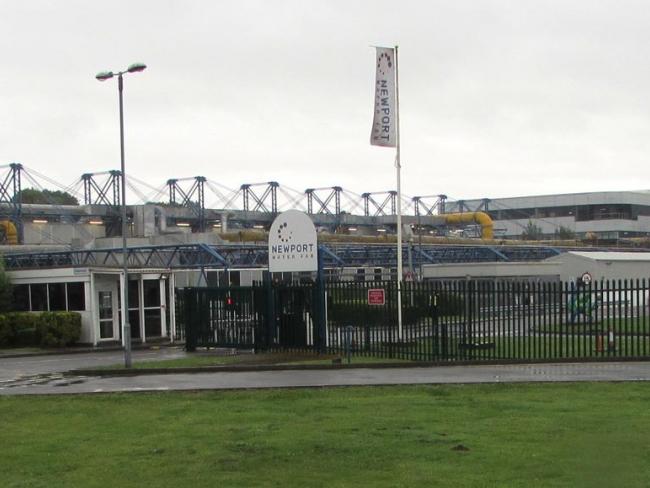
The Newport Wafer Fab factory in Newport, south Wales. Photo Jaggery/geograph.org.uk (CC BY-SA 2.0).
Government inaction has inflicted an uncertain future on Britain’s largest producer of silicon chips…
The future of Britain’s biggest producer of computer chips is in the balance. The government is set to rule on the takeover of Newport Wafer Fab by a Dutch company called Nexperia in July last year. Nexperia, though Dutch, is owned by a Chinese company called Wingtech, registered in Hong Kong and effectively controlled by the Chinese Communist Party, which holds a third of the shares.
The company makes silicon chips for a variety of applications, using a variety of technologies. They’re called wafers because the chips are batch-produced on thin circular discs 200 millimetres wide. Each wafer can hold several hundred chips. The company also researches and produces new kinds of chips.
Newport Wafer Fab has its origin in a company called Inmos, set up with £50 million of UK government money in 1978. Then Margaret Thatcher was elected, and she pushed through its privatisation in 1984, by which time it had received a total of £211 million in government funding.
It’s bad enough when this happens in transport or power generation. When it happens in hi-tech, it’s potentially disastrous, because foreign governments can (the US certainly does) control where hi-tech products can be sold and who has access to them.
If the Newport takeover were an isolated example, disastrous would be a good word for it. But it’s not. For several years now Britain’s hi-tech companies have been the subject of a feeding frenzy – as the Unite union calls it – by foreign companies.
Delayed
The government has delayed a decision on the takeover three times, the first two by then-Business Secretary Kwasi Kwarteng. The decision date was pushed to 3 October, but then Jacob Rees-Mogg, who took over from Kwarteng, said he needed more time to consider things.
Given that Rees-Mogg waved through the Inmarsat sale 10 days after taking office, most likely he was weighing up the political costs of pushing the deal through. Against this background, stories have been appearing in the press – heavily denied by Nexperia – about its connections via Wingtech with the Chinese military.
These stories may be true or false, but they have created a climate in which the former owner of Newport Wafer Fab, Drew Nelson, is being touted as someone who could lead a British consortium to take the company back. If the Nexperia deal falls through and another buyer is sought, Nelson has right of first refusal.
That possibility led to a letter to The Times by the staff association at the company. In it they say they have “absolutely no desire” to work under Nelson. They say that before being taken over by Nexperia the company was a “mis-managed, undercapitalised start-up, struggling to compete even in a buoyant market, ultimately resulting in it becoming a loss-making business.”
Regardless, mismanagement and lack of investment (undercapitalisation) run like a sickly seam throughout British industry. As long as that continues, workers may well tend to see foreign buyers as some kind of a saviour.
It shouldn’t have to be a choice between underinvestment or foreign ownership. For workers everywhere in Britain, the way forward is to pick up the slogan discarded by the false friends of Brexit: Take Control!
